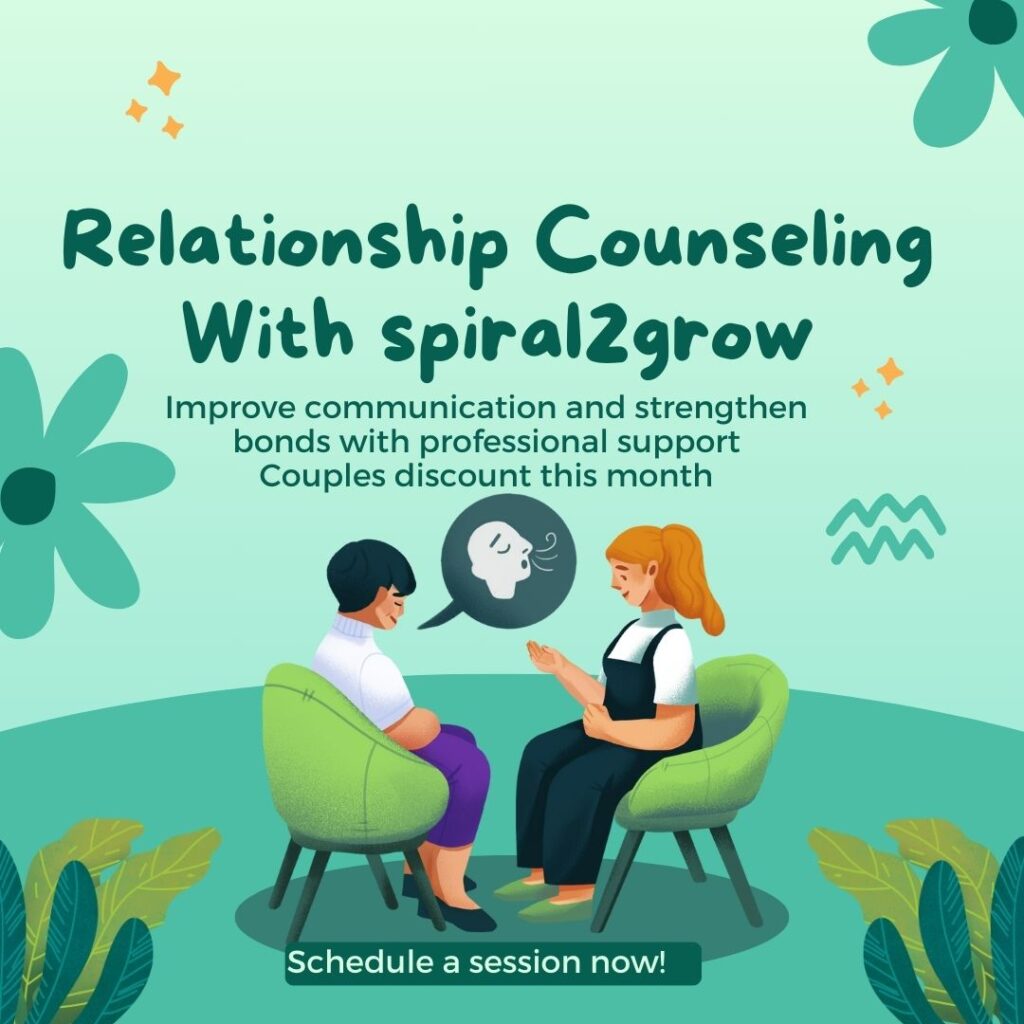How to Choose the Best Couples Therapist
Guidelines for Finding the Right Couples Counselor for Your Relationship
When your relationship faces challenges that seem overwhelming, seeking professional help can be a crucial step toward healing and growth. Finding the right marriage counselor or couples therapist is a personal and significant process. The right therapist can empower both partners to navigate issues effectively, fostering a healthier and more fulfilling relationship. Here are specific considerations to guide your search in finding the best couples therapist for you and your partner.

1. Prioritize Comfort and Compatibility
The therapeutic relationship is built on trust and openness. It’s essential to find a therapist with whom both you and your partner feel comfortable. The therapist should create a nurturing, safe environment where both partners feel heard and respected. A good match in personality and style is critical for effective therapy.
2. Seek Professional Experience in Couples Therapy
Ensure the therapist is educated, licensed, and specializes in couples therapy. Therapists with specific training in relationship dynamics, marriage counseling, or family therapy are better equipped to address the unique challenges couples face. Don’t hesitate to inquire about their qualifications, experience, and approach to couples therapy.
3. Schedule a Preliminary Consultation
Before committing, request a 15- to 20-minute phone or in-person consultation. This initial meeting allows you to assess the therapist’s style, discuss your concerns, and determine if they are a good fit for both partners. A therapist who values this step understands the importance of establishing a strong therapeutic alliance from the outset.
4. Look for Acceptance and Non-Judgment
A competent couples therapist accepts and respects both partners’ perspectives, backgrounds, and beliefs. They should maintain a non-judgmental stance, fostering an environment where each person feels safe to express themselves without fear of criticism or bias.
5. Ensure Confidentiality and Trustworthiness
Trust is paramount in therapy. The therapist should uphold strict confidentiality and create a space where sensitive issues can be discussed openly. If either partner feels unable to be vulnerable, it may hinder the therapeutic process.
6. Avoid Therapists Who Take Sides
An effective couples therapist remains neutral, avoiding taking sides or assigning blame. They should facilitate balanced discussions, helping both partners understand each other’s viewpoints and fostering mutual empathy.
7. Be Cautious of Guarantees
Therapy outcomes can vary, and no ethical therapist can guarantee specific results. Be wary of anyone who promises to “fix” your relationship quickly. Progress often requires time, effort, and commitment from both partners.
8. Look for an Empowerment Focus
A successful therapist empowers you and your partner to develop your own solutions. They should equip you with tools and strategies to navigate challenges independently, strengthening your relationship outside of therapy sessions.
9. Seek a Customized and Flexible Approach
Every relationship is unique. The therapist should tailor their approach to address your specific needs and goals rather than applying a one-size-fits-all methodology. They should be adaptable, employing techniques that resonate with both partners.
10. Assess the Therapist’s Emotional Intelligence
A therapist should exhibit emotional stability, confidence, and empathy. They should manage sessions effectively, demonstrating the ability to handle intense emotions and guide constructive conversations.
11. Expect Clear Communication and Guidelines
Professional therapists provide clear policies regarding confidentiality, session structure, fees, and therapeutic goals. Understanding these guidelines upfront helps set expectations and facilitates a smoother therapeutic journey.
12. Value Proactive Engagement
An effective therapist actively engages both partners, encouraging open dialogue and participation. They should balance listening with providing insights, ensuring sessions are dynamic and productive.
13. Anticipate Assignments and Homework
Therapy extends beyond the sessions. Therapists who assign homework or exercises encourage you to apply new skills in your daily life, reinforcing progress and facilitating real-world application.
14. Focus on Present Challenges
While understanding past influences is important, the therapist should help you address current issues affecting your relationship. The goal is to develop strategies to manage present challenges and improve future interactions.
15. Encourage Collaborative Decision-Making
The therapist should guide you toward making decisions together rather than dictating solutions. They facilitate discussions that help both partners weigh options and consequences, promoting joint responsibility in the relationship’s direction.
16. Open to Feedback and Adjustments
A collaborative therapist welcomes feedback and is willing to adjust their approach based on your needs. Open communication about what’s working (or not) enhances the effectiveness of therapy.
17. Maintain Professional Boundaries
Ethical therapists uphold clear professional boundaries. Any inappropriate behavior, such as forming personal relationships beyond therapy, is unacceptable. Trust your instincts, and if something feels off, consider finding a new therapist.
18. Regularly Evaluate Progress
Progress assessment is vital. The therapist should periodically review goals and evaluate the effectiveness of the therapy, adjusting strategies as needed to ensure continued growth.
Conclusion
Finding the right couples therapist may require time and effort, but it’s a worthwhile investment in your relationship’s future. Prioritize finding a professional who fosters a safe, respectful, and collaborative environment. With the right support, you and your partner can navigate challenges more effectively, strengthen your bond, and enhance your overall satisfaction in the relationship.





